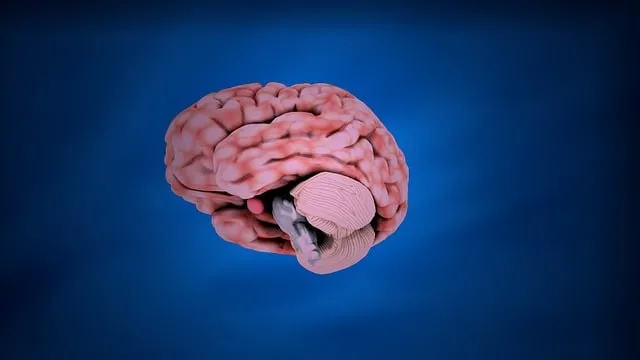Kaiser Permanente Colorado Springs employs a dual strategy for enhancing behavioral health services: rigorous data analysis and community engagement. They leverage diverse data sources, including electronic health records and community surveys, to gain insights into mental wellness trends. By combining this data with cultural competency training, they provide tailored, sensitive care. Initiatives like the Mental Wellness Podcast Series educate the public and promote solutions, aiming to prevent burnout and foster mental wellness. This approach allows for continuous improvement in behavioral health services, better catering to patients' needs.
Mental health data analysis is a powerful tool for understanding and improving community well-being, especially within established healthcare systems like Kaiser Permanente Colorado Springs. This article explores the process of analyzing behavioral health services data at Kaiser Permanente, offering a comprehensive overview tailored to their context. We discuss methods for interpreting findings, with a focus on enhancing mental health care delivery in the Colorado Springs community. By leveraging data insights, Kaiser Permanente can ensure targeted interventions and improved outcomes for individuals seeking behavioral health support.
- Understanding Mental Health Data: A Comprehensive Overview for Kaiser Permanente Colorado Springs
- The Process of Analyzing Behavioral Health Services Data at Kaiser Permanente
- Interpreting Findings: Enhancing Mental Health Care Delivery in Colorado Springs Community
Understanding Mental Health Data: A Comprehensive Overview for Kaiser Permanente Colorado Springs

At Kaiser Permanente Colorado Springs, understanding mental health data is a multifaceted endeavor that encompasses not just numerical analysis but also contextual interpretation. The healthcare provider’s behavioral health services rely on comprehensive insights to offer tailored care that addresses the unique needs of its diverse patient population. This involves delving into various data sources, from electronic health records to community surveys, to gain a holistic view of mental wellness trends within the region. By integrating this data with cultural competency training for staff, the organization ensures that services are sensitive and effective across different cultural backgrounds.
Moreover, initiatives like the Mental Wellness Podcast Series Production play a crucial role in both educating the public and analyzing community mental health needs. These podcasts not only raise awareness about various aspects of mental health but also provide a platform to discuss challenges and solutions, reflecting the organization’s commitment to burnout prevention and fostering an environment that promotes mental wellness. This dual approach—combining rigorous data analysis with community engagement—enables Kaiser Permanente Colorado Springs to continually improve its behavioral health services and better serve the people it cares for.
The Process of Analyzing Behavioral Health Services Data at Kaiser Permanente

At Kaiser Permanente in Colorado Springs, the process of analyzing behavioral health services data is a comprehensive and systematic approach to understanding and improving mental wellness within the community. The journey begins with data collection, where patient records, clinical notes, and survey responses are meticulously gathered from various sources across the organization. This includes electronic health records, satisfaction surveys, and feedback from both patients and mental health professionals.
Once collected, the raw data undergoes rigorous cleaning and preprocessing to ensure accuracy and consistency. Advanced statistical techniques and machine learning algorithms are employed to identify patterns, trends, and correlations within the dataset. For instance, analyzing patient demographics alongside their utilization of behavioral health services can reveal insights into specific populations at higher risk, guiding the development of targeted public awareness campaigns and tailored interventions. Furthermore, risk assessment for mental health professionals is enhanced through data-driven insights, enabling better support systems and improved practice outcomes in Colorado Springs.
Interpreting Findings: Enhancing Mental Health Care Delivery in Colorado Springs Community

Interpretation of data is a critical step in enhancing mental health care delivery within the Colorado Springs community, particularly for organizations like Kaiser Permanente offering behavioral health services. By meticulously analyzing trends and patterns from patient records, healthcare providers can gain valuable insights into the specific needs and challenges faced by residents. This process enables them to tailor their services more effectively, ensuring that interventions are culturally sensitive and aligned with Mind Over Matter Principles. For instance, identifying high stress levels among certain demographics could lead to targeted programs focused on Stress Management, thereby improving overall community well-being.
Understanding the data allows mental health professionals to adapt their practices, fostering a more inclusive environment. Cultural Sensitivity in Mental Healthcare Practice becomes a cornerstone when delivering services that resonate with diverse populations. This approach not only improves patient outcomes but also encourages individuals to seek help without barriers, knowing they will receive culturally competent care tailored to their unique needs.
Mental health data analysis and interpretation play a pivotal role in enhancing care delivery at Colorado Springs Kaiser Permanente, particularly for its behavioral health services. By understanding complex datasets, navigating insights from diverse sources, and interpreting findings with sensitivity, the organization can tailor interventions to meet the unique needs of the community. This strategic approach ensures that mental health resources are allocated effectively, ultimately improving patient outcomes and fostering a healthier Colorado Springs.






